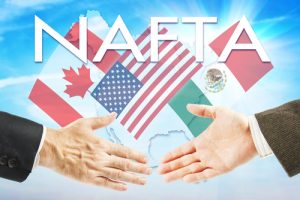
Several U.S. Republican senators recently wrote to President Donald Trump quantifying how the North American Free Trade Agreement (NAFTA) supports U.S. economic development and workforce livelihood and seeking his support for modernizing the trade pact.
Representatives of the United States, Canada and Mexico recently concluded the latest round of NAFTA talks in Montreal about the agreement’s future and head to Mexico City this month to take up talks again. Trump has indicated he would end NAFTA if certain U.S. priorities aren’t included in the agreement.
“You have the opportunity to unleash the American economy like no President has done before and fuel historic growth,” the U.S. senators wrote to Trump in their Jan. 30 letter.
A variety of industries across the United States already benefit from NAFTA, which fosters $1.3 trillion each year in U.S. trade with Canada and Mexico and fuels some 14 million U.S. jobs, translating to thousands of jobs per state, but “we can do better and there are opportunities to improve the agreement,” the senators wrote.
Among the Republican co-signors were U.S. Sens. Cory Gardner of Colorado; Joni Ernst of Iowa; Deb Fischer of Nebraska; Pat Roberts and Jerry Moran of Kansas; Mike Rounds of South Dakota; Roy Blunt of Missouri; Dr. Bill Cassidy of Louisiana; John Hoeven of North Dakota; Steve Daines of Montana; Todd Young of Indiana; Thom Tillis of North Carolina; and Roger Wicker of Mississippi.
The senators suggested in their letter that a new and improved NAFTA would be more useful if it includes provisions on intellectual property and e-commerce, as well as those on boosting market access and increasing energy exports while raising domestic energy production.
“The recent tax reform bill is already leading to economic success across all industries and the stock market is at record highs,” the senators wrote. “The next step to advance the economy requires that we keep NAFTA in place, but modernize it to better reflect our 21st century economy.”



